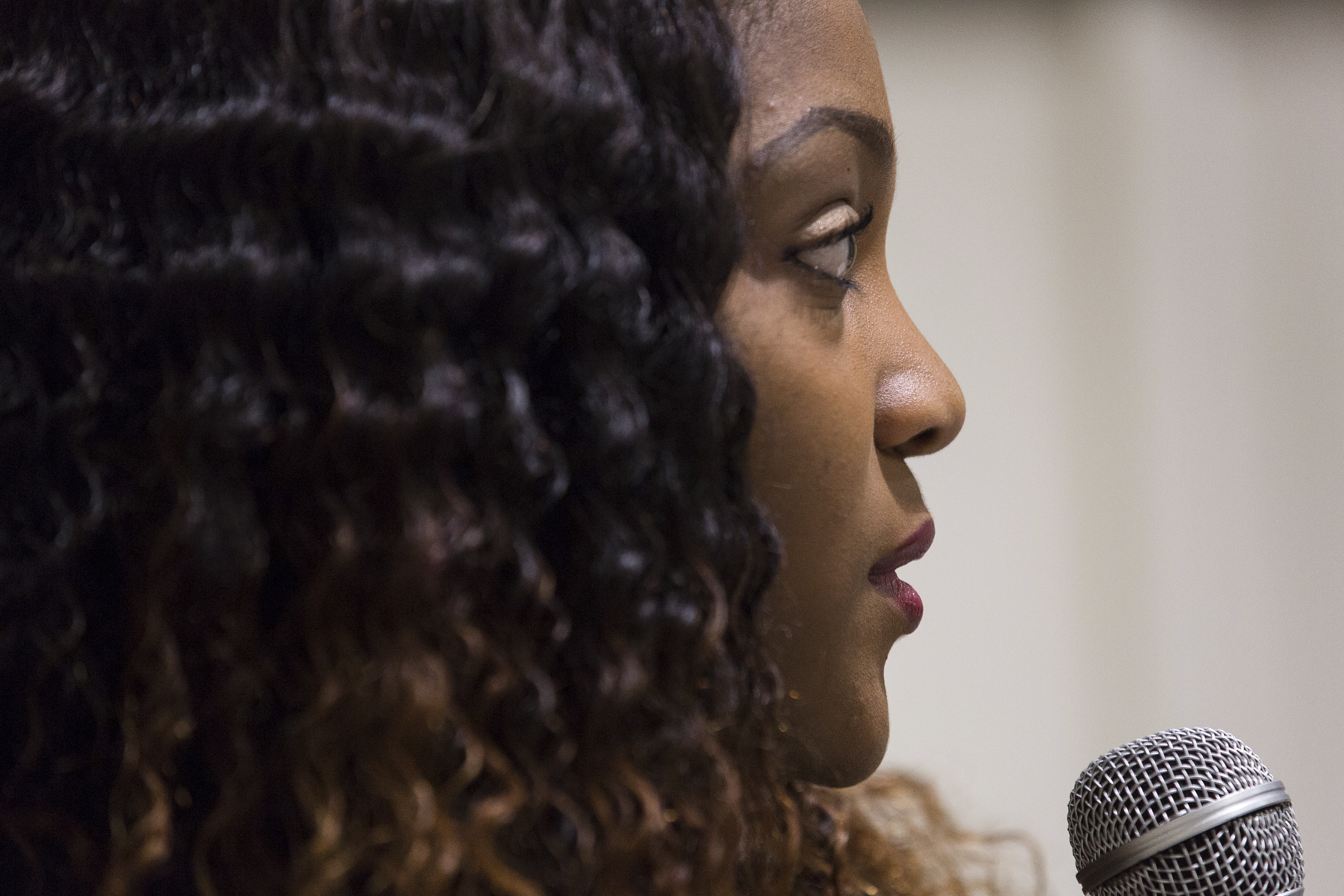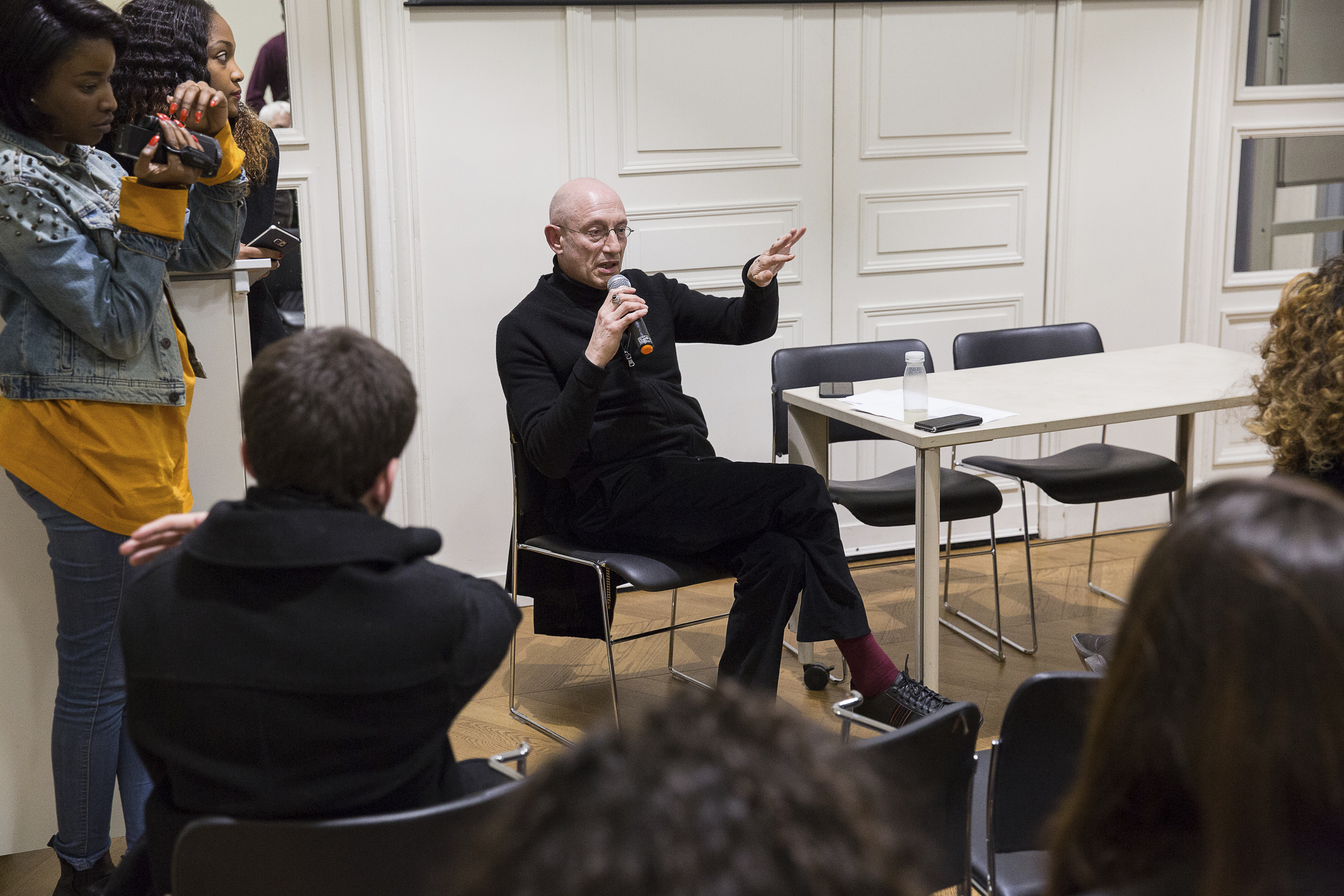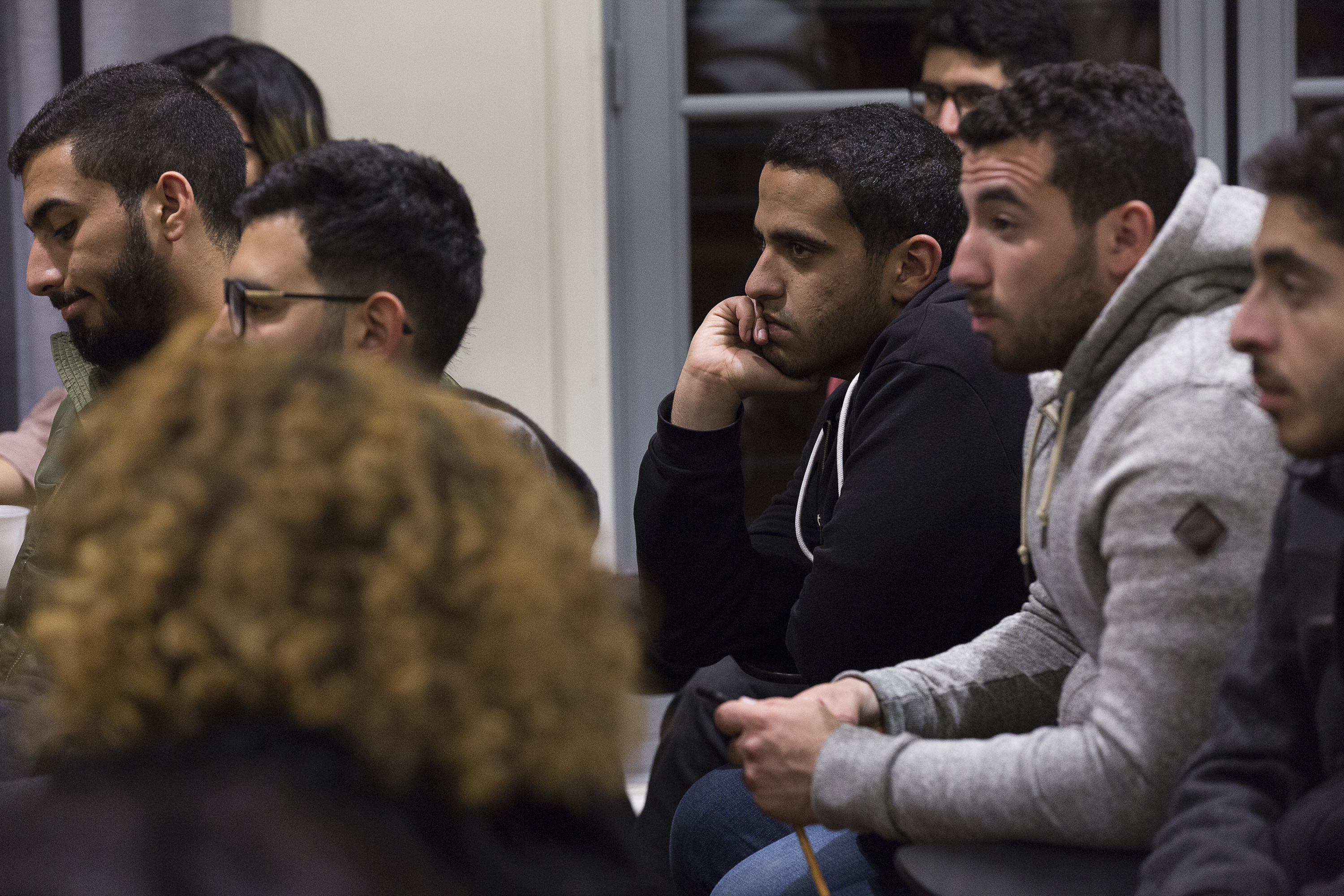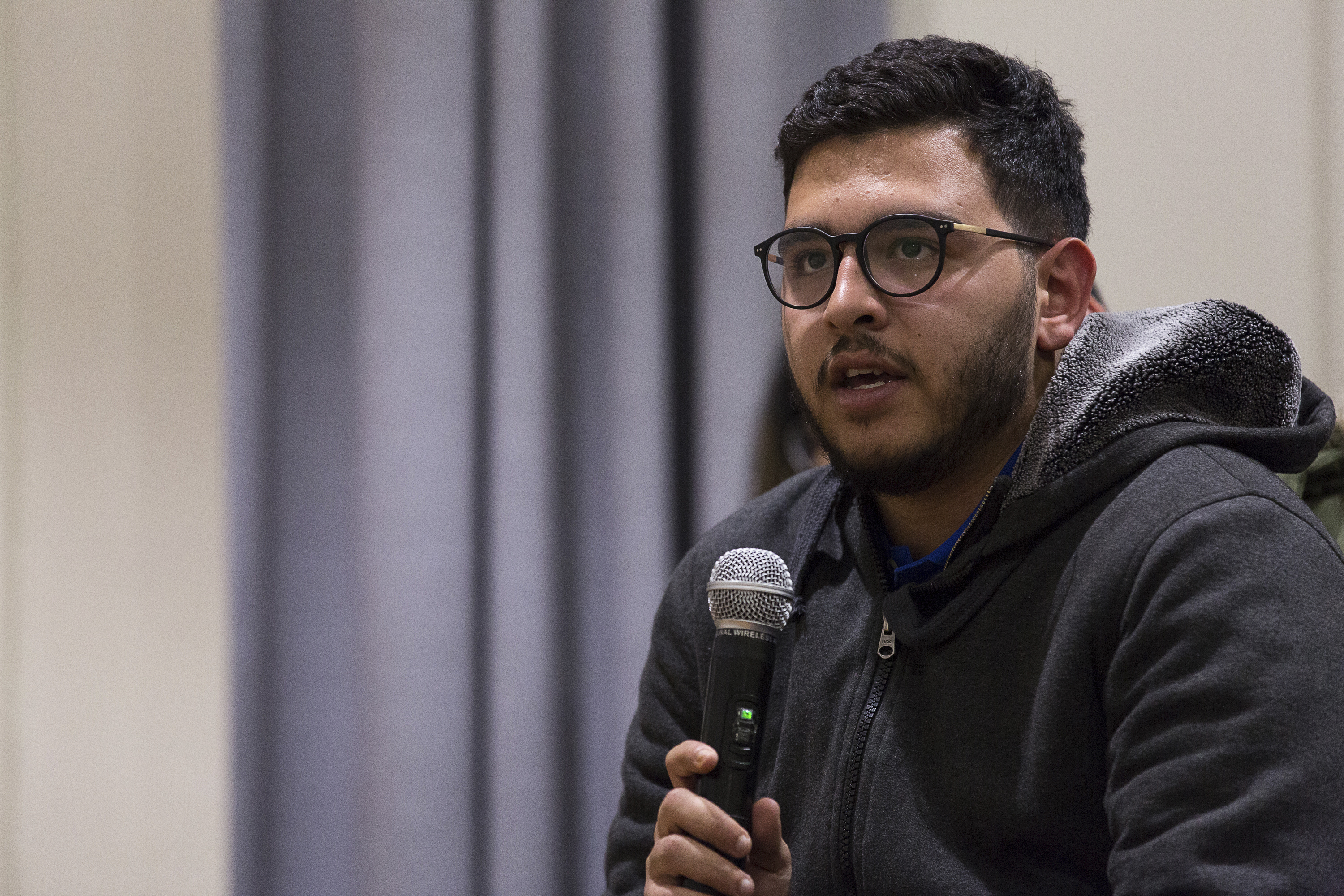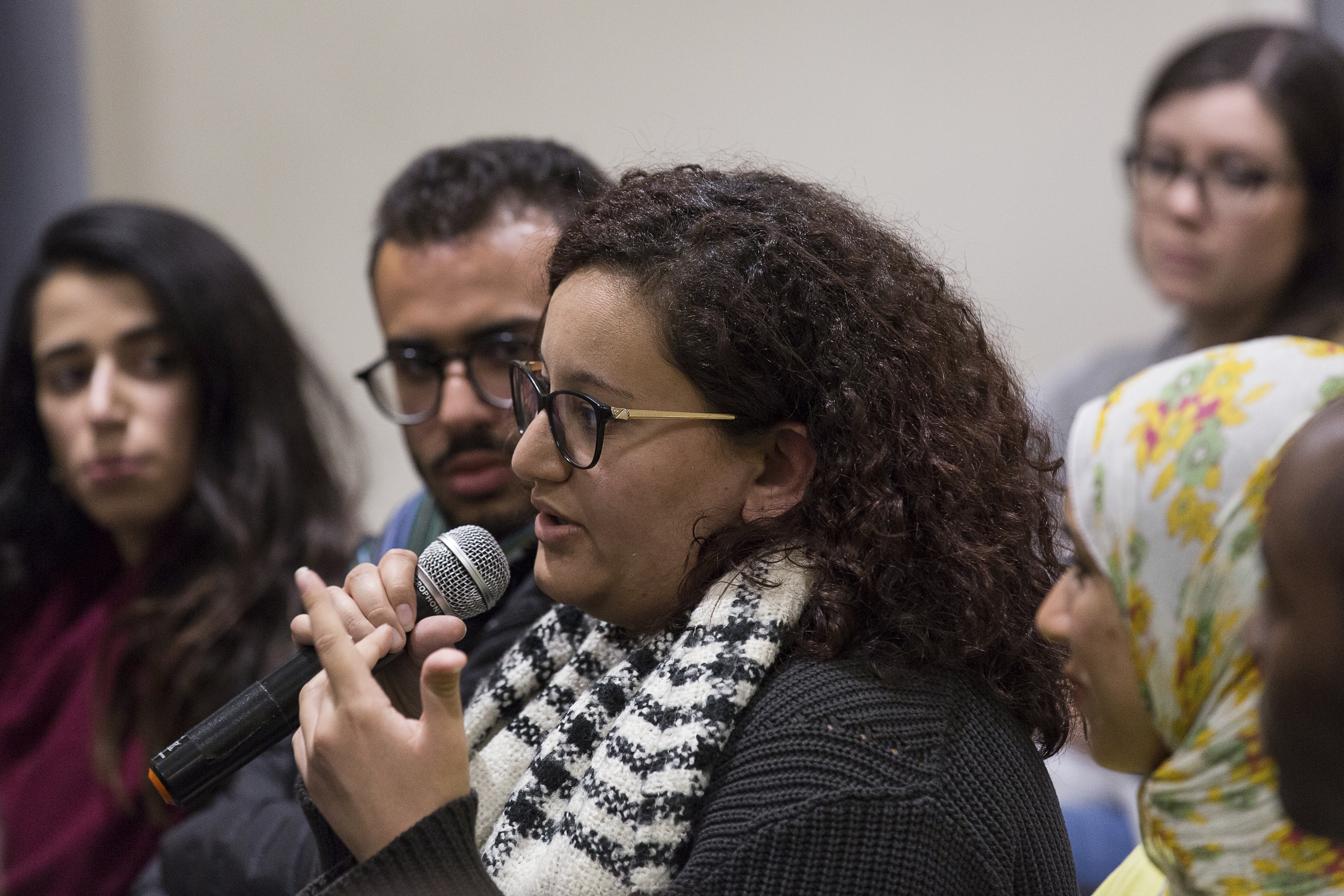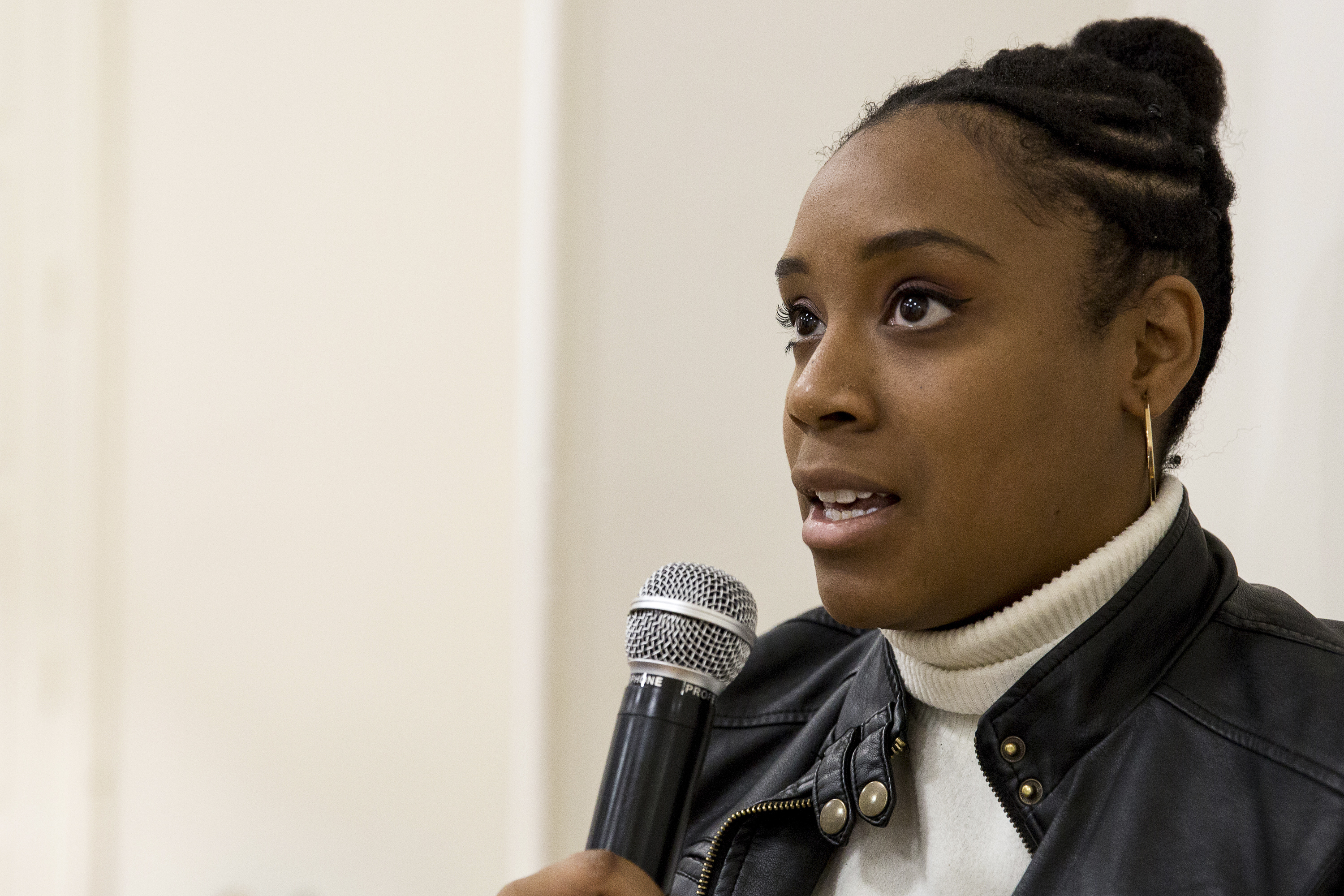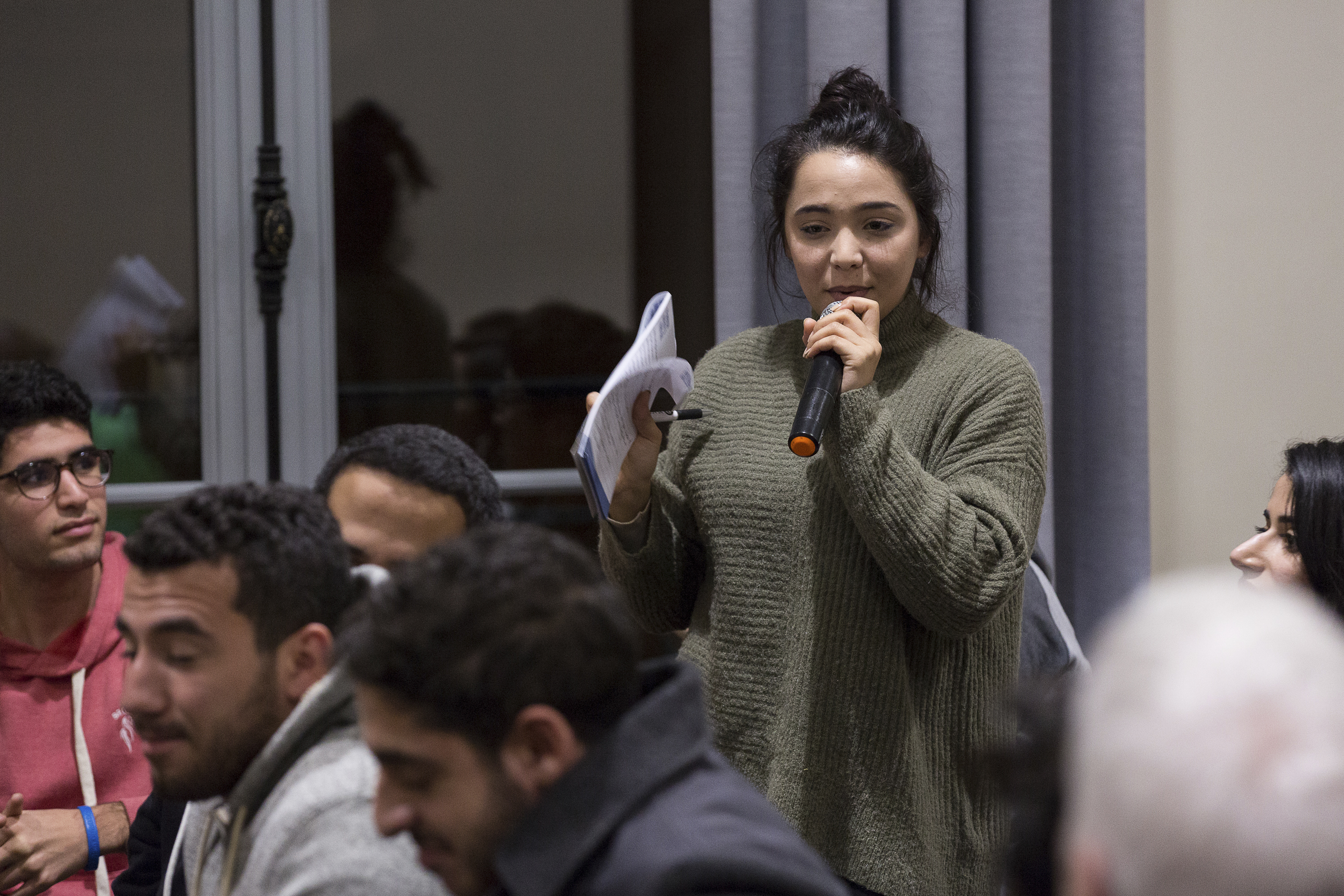A Complete Absence of Humanity
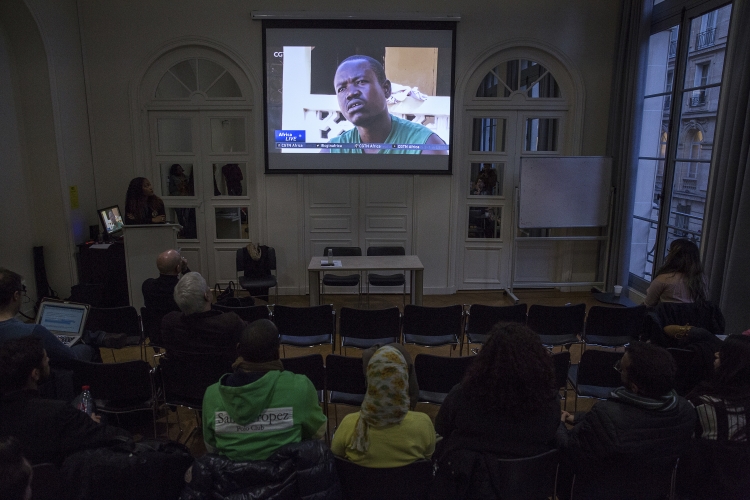
Thursday evening marked the final AUP Black History Month event, hosted by Inspire Africa, concluding the month with a healthy, student-led discussion on modern slavery and human trafficking in Libya, which was exposed on a mass scale in 2017. Club president Gloria Atanga, a senior majoring in international finance, moderated the event and provided an introduction for participants into the current events in Libya and why the issue of modern slavery is relevant in Western society.
Inspire Africa chose for this event to be a student-led, Atanga says, because “we wanted it to be interactive, not something where the students are just receiving from someone. We wanted students to receive and be able to give back in return.” Although the 20-year-old from Cameroon says she has not been directly affected by slavery, aside from the ways she knows it impacted her ancestors, Atanga says she still feels very connected to the issue. “I relate to [the issue of slavery] from a basic human level. This is happening to humans.”
During her introduction, Atanga described what she observed when she first witnessed documentation in the news regarding slavery in Libya. “I saw on the one hand what was being shown. I saw people being sold as slaves for $400. I saw black migrants expressing and showing the proof of their torture that they are experiencing because of their black skin. I saw women giving testimonies about being sold as slaves, as sex slaves. That’s what I saw on the one hand. On the other hand, I saw 400 years of intense slavery. I saw the deconstruction of an identity, the construction of a new one. I saw our forefathers who fought, sacrificed their lives and died for our liberty. All for this. For us in 2018 to be experiencing slavery, in its’ crudest form, again.” She continued by saying “I see people with physical, human features but I see a complete absence of humanity.”
“I see people with physical, human features but I see a complete absence of humanity,” Inspire Africa president Gloria Atanga said during her introduction to the club’s Talk on Human Trafficking and Slavery in Libya on the evening of Thursday, February 22. Image credit: Gabriel GreenProfessor Philip Golub, the co-chair of the international and comparative politics department, was tapped to facilitate the discussion and offer his input into the current affairs of transnational migration and resulting human rights violations. Golub offered what he referred to as a “relentless uncompromising critique” of “Europe’s scandalous response” to recent migration and asylum trends.
The professor stated in his introduction to the discussion that “the UN convention on refugees of 1951 is being systematically violated in Europe.” He went on to point out that “this continent is supposed to be one of the parts of the world that defends human rights and human dignity and the law. International law is being systematically violated on a day-to-day basis in ways that are not visible to most people because they’re being done quietly.”
Professor Philip Golub gives his insights into modern slavery, transnational migration and the EU's role in such matters during Inspire Africa's discussion last Thursday. Image credit: Gabriel GreenStudents in the audience kept their gaze intently fixed on professor Golub as he covered topics ranging from the EU’s contribution of police resources in Libya being used to stem migration flows, to the cosmopolitan political perspective. Within this perspective, Golub asserted that “all human beings are of an equal moral worth, human beings are not commodities, human beings are not things to be used, to be consumed, to be discarded, to be sold. All human beings are moral ends and not means.”
Making reference to opinions against the acceptance of migrants and asylum seekers into European society, Golub went on to say “we all happen to be born in one place rather than another, that’s luck. We all happen to be born with a certain pigmentation of skin, that’s luck, that’s chance. We happen to be born on this side of the border or that side of the border, that’s luck. Sometimes it’s un-luck and sometimes it’s luck. These are all morally arbitrary distinctions that cannot be used as justification under any circumstances to treat the “other,” in a cosmopolitan perspective, as any different from the family in a certain sense, or any different from the community, or any different from the nationality.”
AUC students listen intently to Professor Golub during last Thursday's Inspire Africa discussion on modern slavery and human trafficking. Image credit: Gabriel GreenWhen the floor was opened for discussion, students, including many visiting from the American University of Cairo, posed questions to professor Golub and provided their own observations on racism in their home countries. Chadi Ben Ghanem, 20, from AUC, citing today’s historically high number of refugees and Europe’s violations of international law regarding asylum rights, asked: “what would be the most sustainable solution that we could come up with, as an international community, to solve such a crisis?”
Professor Golub again offered his insight, making clear that he believes there is no simple solution to the problem. However, in the case of Libya, which has been politically unstable for decades, and other sub-Saharan African states, Golub asserted that there must be “a long-range program of state building.” he also stated, “the conditions under which these human beings are being detained must change.” This, Golub said “doesn’t demand an enormous amount of material wealth,” but he claimed “the reason the Europeans have created such harsh detention centers is to deter migrants from coming. This is not a hypothesis on my side, we know this.”
Atanga went on to ask whether AUC students have witnessed racism or hatred toward those with darker skin in their own communities in Cairo. One AUC student said, in his observation “I can guarantee 100 percent, most Egyptians aren’t racist against color or dark-skinned people. We think of ourselves more as Arabs because of the language and nothing more. But I didn’t encounter any racist encounters that happened to any dark skinned person on the street. Lighter skinned people don’t have an advantage economically or politically or anything like that.”
A visiting AUC student shares his observations about racism and discrimination in Egypt. Image credit: Gabriel GreenThese comments stirred some dissent from other AUC students, who argued that racism does exist on a large scale in Egypt. Another student from AUC, who stated that she is an anthropology major, told second-hand accounts of racism that friends of hers have experienced in Egypt. “I would say that I disagree. We have a writer at the AUC Times, she’s black and she’s American and she mentioned that once she was working at a school and that one of the students for Mother’s Day gave her a skin whitening cream. So these things do happen.
"I was doing field work at a school for Sudanese refugees and I was talking to them; there is so much hate and violence they’re subjected to and people would do things as bad as throwing things at them in the street, to the extent that little kids who go to school and even the schools that are designed for refugees, stop going to school. Not because of financial problems or because of a lack of desire to learn, but because the students there harass them so much because of their blackness.”
The student then said that she understands the position of her peer may come from a place of good faith. “I think that when we admit that [racism] does [exist] is the first step that we can take to actually seeing what can be done about it. But to think that it doesn’t exist at all… is unfair to a lot of people who are subjected to this kind of violence on a daily basis.”
An AUC student offers a dissenting opinion on a comment made by one of her peers. Image credit: Gabriel GreenIn response, the AUC student who first spoke about his observations of racism stated that he agreed with many aspects of what his peer mentioned but “the problem we have in Egypt isn’t racism out of hatred, but because we are people who like to joke around a lot and we take things that are like that casually, and we shouldn’t. That totally shouldn’t happen.”
Another AUC student replied to the story about someone receiving skin whitening cream as a gift saying “maybe some Egyptians desire whiter skin, but it’s not because of hatred to the blacks… around 70 percent of the population of Egypt is kind of darker-skinned. So, the desire for white skin is the desire for a change, not because of hatred for darker skin. It’s about having something new.”
AUC presidential intern Jada Bullen made a rebuttal saying “we have to think about why they have those desires. I am an African American who’s now living in Cairo and I can’t find a color of makeup that’s my shade and I know that I’ve seen people who look like me, who have skin that is darker than me. And you have to ask, why is there a good portion of people who are not even served in that way, something as trivial as makeup, but it’s showing a kind of denial or neglect for a certain color. We have to think about the deeper reasons. I want to push back on the idea that it’s just about change. I think that it’s not just something innocent.”
AUC presidential intern Jada Bullen shares her opinion during the discussion Thursday evening. Image credit: Gabriel GreenGhanem offered another observation saying, “we actually went and sat down with many of the students at AUC from different backgrounds, and every single student that we sat down with that was of any form of dark skin or darker than the average all reported a lot of hatred. Some of it was subtle and some of it was outspoken. Some of it was in the words people used when they spoke to them. Some of it was in the assumptions. They would assume that they were Sudanese for example, they wouldn’t assume that you’re an educated woman because you are black, they would just assume that you’re not an educated woman or that you’re a servant. When I go talk to people and they tell me this happened and they’ve seen at least vestiges of hatred, I take their word for it. I’m not going to assume that maybe the people were just joking around. Because joking around and racist comments and racist jokes are indicative of racist behavior.”
Ending the discussion of the E.U.’s role in this issue of slavery in Libya, Bullen observed “the European Union is also an economic entity and, unfortunately, we live in a society that basically runs on the capitalist system both nationally and internationally. The people who are selling other people is because they cannot find any other lucrative means in which to make money. So we need to be thinking about solutions that help empower those that don’t see options. This might be a bit of a stretch but the people who are being sold and the people that are selling, at some kind of level are doing these acts for the same reason. They need to support themselves and they need to find ways of to better their own situation. So, the European Union, instead of paying money toward detention centers have to be finding ways to work with the governments of those nations, to work with the people of those nations, to empower the entrepreneurs in those nations so that their societies can build on their own in a sustainable way. That’s a better use of money. I think what they’re doing now is very short-sighted and in the long run, they should be thinking of something more long-term.”
Hiba Belhadj from AUC added “racism does exist. Racism exists in Egypt, racism exists in Libya, in Morocco, in Tunisia, in Algeria, everywhere, wherever you go.” Image credit: Gabriel Green
